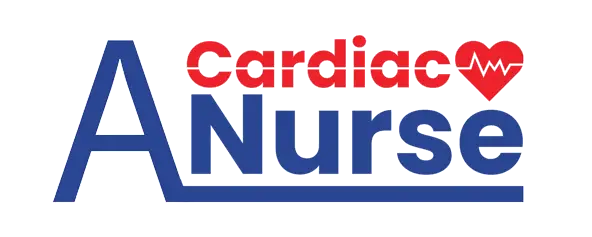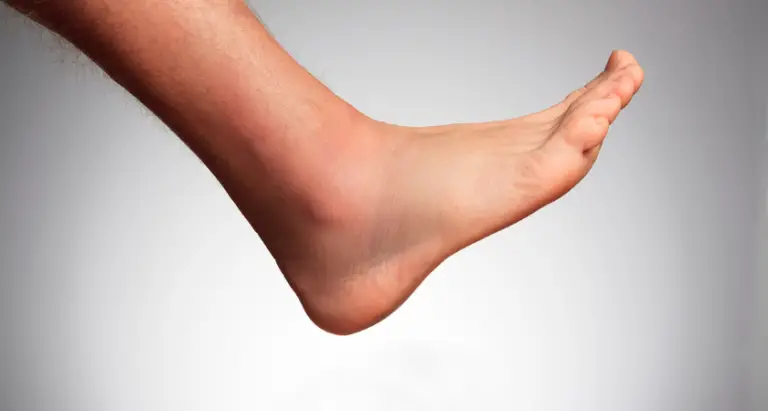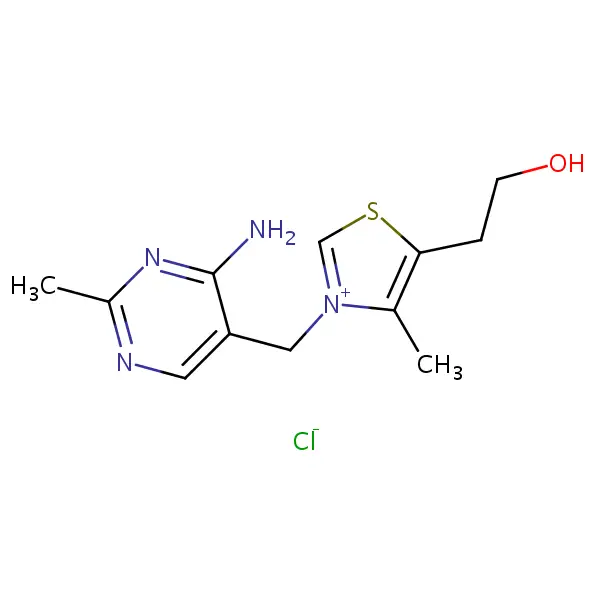Causes Of Zinc Deficiency In Humans
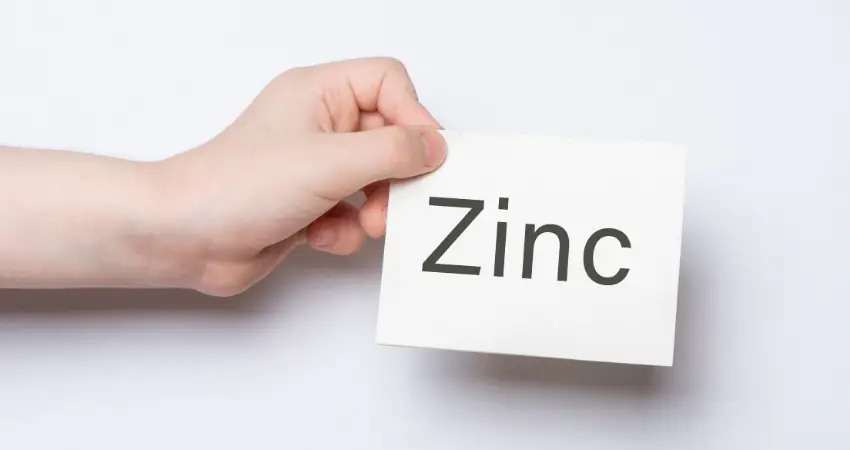
Causes Of Zinc Deficiency In Humans
Zinc is a mineral found in a wide variety of plant and animal foods. Zinc is called an essential trace element. This means that it is required by the body for proper growth, development, and functioning and that it is required in small amounts. In this article, we will discuss the causes of zinc deficiency in the body.
The body uses zinc for various body functions such as immune function, maintaining the sense of smell and taste, wound healing, blood clotting, thyroid function, protein synthesis, and much more.
Zinc also supports a person’s growth and development and is therefore important for pregnant women as well as growing children. Although the body does not need large amounts of zinc, there can be various causes of zinc deficiency in humans.
The human body does not store excess zinc, which means that it is important to get enough of the mineral daily from food in order to prevent a deficiency.
The recommended daily intake of zinc by age is as follows:
- Infants 0 to 6 months 2 milligrams (mg)
- Babies 7 months to 3 years 3mg
- Children 4 to 8 years 5mg
- Children 9 to 13 years 8mg
- 14 to 18 years 11mg for males and 9mg for females
- 19 years and older 11mg for males and 8mg for females.
Pregnant and lactating females need slightly more zinc daily.
If the body does not have the zinc it needs, a person could experience symptoms associated with zinc deficiency such as slowed growth, loss of appetite, irritability, generalized hair loss, rough and dry skin, slow wound healing, poor sense of taste and smell, diarrhea and nausea.
/im
What Causes Zinc Deficiency In Humans?
The diagnosis of zinc deficiency is usually based on a review of the patient’s eating habits and health history. This is because laboratory testing is not generally useful in the clinical setting, due to the fact that plasma and serum zinc levels do not necessarily reflect the zinc status in the body’s cells, where most of the zinc is.
The causes of zinc deficiency can fall into four categories:
- Insufficient intake of zinc through diet,
- inadequate absorption of the zinc taken in,
- increased loss of zinc from the body, or
- increased use of zinc by the body.
There can also be a combination of the above taking place at the same time.
Let us look at some population groups that face an increased risk of zinc deficiency.
People With Gastrointestinal And Other Diseases
Surgery of the gastrointestinal tract and digestive disorders (such as Crohn’s disease, ulcerative colitis, and short bowel syndrome) can decrease the absorption of zinc.
Causes Of Zinc Deficiency In Humans
- malabsorption syndrome
- chronic liver disease
- chronic kidney disease
- sickle cell disease
- diabetes
- malignancy
- and other chronic illnesses.
- Excessive loss of zinc can also be caused by chronic diarrhea.
Diuretics are medications designed to increase the amount of water and salt expelled from the body as urine. They are often prescribed to treat high blood pressure and other conditions. Taking some medications, for example, thiazide diuretics, such as chlorthalidone or hydrochlorothiazide, can also increase the body’s release of zinc
The link between Zinc Deficiency and Age
Older adults are at risk of zinc deficiency because they may not habitually eat or have access to a wide variety of foods and also because they may be having some of the conditions mentioned above.
Pregnant And Lactating Women (And Girls)
Pregnant women are at increased risk of becoming zinc insufficient, partly due to high fetal requirements for zinc. This is particularly so for those starting their pregnancy with low amounts of zinc taken in through the diet to begin with. Lactation can also use up zinc from the mother. For these reasons, the Recommended Dietary Allowance (RDA) for zinc is higher for pregnant and lactating women (11 mg and 12mg respectively, and a bit more for females under 18) than for other women.
Older Infants Who Are Exclusively Breastfed
Breast milk provides sufficient zinc (2 mg/day) for the first four to six months of life. After that, babies need 3mg of zinc per day.
For this reason, in addition to breast milk, infants aged seven to twelve months should be fed age-appropriate foods containing zinc. If necessary, they may also be given formula or cereal that has been fortified with zinc and other minerals.
Vegetarians
Phytic acid is a natural substance found in plant seeds. Seeds such as nuts, beans, and grains store phosphorus as phytic acid.
When phytic acid is bound to a mineral in the seed, it is known as phytates. Phytic acid inhibits the body’s absorption of zinc (and also iron and calcium) and may thus promote mineral deficiencies. Phytic acid is only found in plant-derived foods.
Vegetarians usually eat high levels of legumes and whole grains, which contain phytates, and thus the zinc from these foods is not well absorbed by the body.
In addition, vegetarians do not eat meat, which is a good dietary source of zinc.
However, vegetarians may use certain techniques in preparing their food in order to reduce the presence of phytates and thus increase the availability of zinc to the body. We shall look at these techniques later in this article.
People With Sickle Cell Disease
Research suggests that people with sickle cell disease tend to have low zinc levels, possibly because of increased nutrient requirements or poor feeding, or both these factors. Zinc supplementation has been shown to improve growth in children with sickle cell disease.
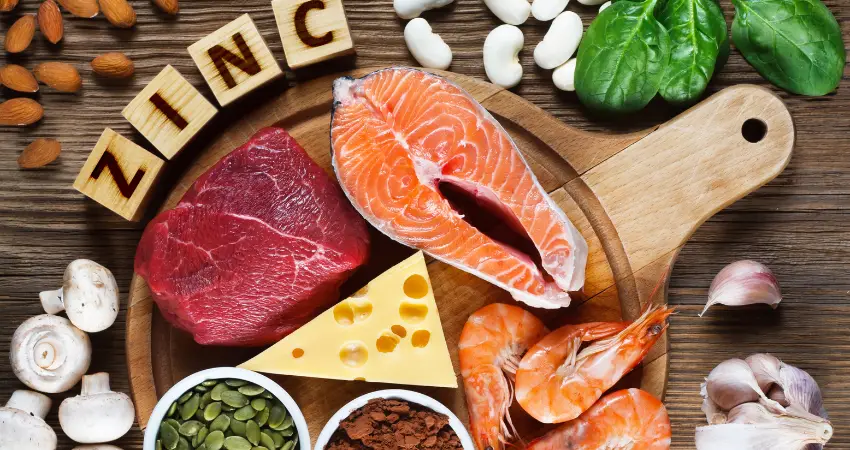
People With Alcohol Addiction
About 30% to 50% of people who habitually abuse alcohol have low zinc. This is because the intake of ethanol decreases the absorption of zinc in the intestines and also increases the excretion of zinc through urine.
In addition, alcoholics tend to consume food of limited variety and in limited amounts, leading to inadequate zinc intake. This is an example of multiple factors contributing to zinc deficiency at the same time.
Treatment for Zinc Deficiency
Treatment would normally be by addressing the causes of zinc deficiency.
If there are no underlying health conditions, most adults can achieve an adequate zinc intake by eating a variety of zinc-rich foods each day. Such foods include meat, fish, poultry, chickpeas, baked beans, almond, peas, yogurt and milk.
For vegetarians and also non-vegetarians, to reduce the phytates that were mentioned earlier and thus increase the absorption of zinc from plants, a number of methods are used.
Here are some common ones:
Soaking: Cereals and legumes are often soaked in water overnight to reduce their phytate content.
Sprouting or germination: The sprouting of seeds, grains and legumes causes phytate breakdown.
Lactic acid fermentation: Organic acids, formed during fermentation, promote phytate breakdown.
These methods can be used individually or combined to substantially reduce the phytate content of plant-based foods.
Fortified cereals and milk can help young children and even adults increase their zinc intake.
Supplements are available at most pharmacies and health stores and may be necessary for vegetarian children or adults following very restricted vegan diets or for people having health conditions discussed earlier, that interfere with zinc absorption or use or cause zinc loss.
Sources
https://www.medicalnewstoday.com/articles/320393
https://ods.od.nih.gov/factsheets/Zinc-HealthProfessional/#en1
https://pubmed.ncbi.nlm.nih.gov/2873002/
https://pubmed.ncbi.nlm.nih.gov/9544903/
https://pubmed.ncbi.nlm.nih.gov/9701169/
https://pubmed.ncbi.nlm.nih.gov/24871479/
https://pubmed.ncbi.nlm.nih.gov/8406052/
https://patient.info/doctor/zinc-deficiency-excess-and-supplementation-pro
https://www.researchgate.net/publication/15027366_Zinc_supplementation_of_infant_formula
Phyllis Robinson MSN, RN is a Registered Nurse of 27 years. Phyllis is passionate about the prevention and healing of heart disease using traditional and alternative methods. She has experience in emergency room, telemetry, infusion, and critical care. Phyllis currently practices in an intensive care unit.
